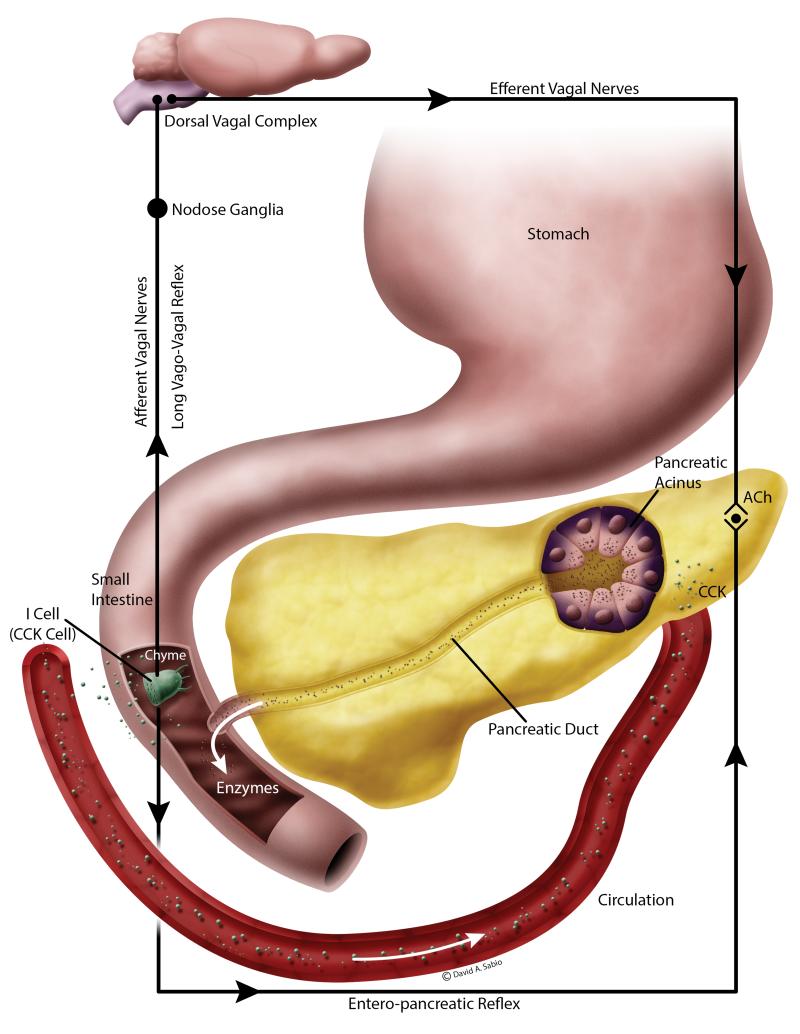Figure 2.
Cholecystokinin (CCK) stimulation of the exocrine pancreas is species dependent. In rodents, CCK released from the I cells within the intestine enter the circulation and directly stimulate the CCK1 receptors on the exocrine acini to stimulate secretions. In addition, CCK can also activate the sensory nerve fibers resulting in the activation of long vago-vagal and short enteropancreatic cholinergic reflexes. However, in humans, the latter process is the most accepted physiological process of exocrine stimulation. (Adapted from Wang and Cui, 2007)

